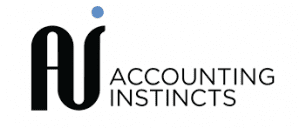A “flat tax” is not a new idea. It has been used in history with far greater success than the current progressive tax system that penalises those who are more productive, by taxing them more. A flat tax encourages saving, and therefore investment, which in turn fuels economic growth.
This, says Saiba CEO Nicolaas van Wyk, is a radical idea, but one which could quickly transform SA’s weak economic outlook to a Singapore-style miracle story.
The good news is that Finance Minister Tito Mboweni has signalled that SA appears to have reached the end of the road as far as increasing tax rates is concerned. But the lack of a growth vision is glaring, and disturbing.
Siphamandla Mkhwanazi, economist at FNB, speaking at a Budget Trilogy Event on Wednesday (of which Saiba is a co-sponsor with SA Institute of Tax Professionals) pointed out that no country has ever taxed its way to a higher growth rate. Examples of pro-growth strategies that are working include the releasing of telecoms bandwidth to promote more competitive and lower data costs. The same needs to be done in the energy sector, but we are late in addressing the urgent need for reform in this regard.
Van Wyk argues that some of the R9 billion allocated in the 2021/22 Budget for Covid should be allocated to distributing vitamins, especially C and D, which are proven to reduce the severity of Covid. This is particularly relevant in SA where a large part of the population is malnourished. Additional money could also be provide households with access to oxygen and home-based treatments that will counter the effects of Covid-19. This will have the additional benefit of alleviating stress on hospitals.
“We applaud the R791 billion infrastructure programme, as economic growth and recovery cannot occur if the existing infrastructure is not maintained. We don’t support the user-pay principle as we already have a progressive tax system that further burdens those already paying excessive tax. In addition, savings from salaries from public sector and recoveries of state capture losses should cover the infrastructure payments,” says van Wyk.
Mounting debt
To bring the R5,2 trillion debt that is expected by 2024 under control will require a better business environment so that we can grow our way out of this mountain of debt. This will also require a more committed effort to stop tender fraud and the misuse of state assets. We need to cut the size of the public sector and encourage the professionalisation of the public sector, by insisting on membership of professional accounting bodies for all finance function staff of SOEs, as well as all three levels of government – local, provincial and national.
Hiding tax increases under the user-pays principle
There is a sleight of hand in the latest budget: by hiding tax increases under “the user must pay” principle – and then claiming that taxes are not increasing – is still a tax by any other name. On top of this, we have national debt climbing to a staggering R5.2 trillion by 2024.
To then hope for an economic recovery to rescue the country with very little to stimulate small business growth – which is the real engine of wealth and job creation in SA – is misguided.
“Our tax system is progressive, meaning the more you earn the more you pay, so the higher the tax percentage that you pay. There is no “User-Must-Pay” foundation to represent the interests of taxpayers. The user-must-pay principle implies that I should be able to refuse payment if the service is of poor quality. If the Minister insists on a user-must-pay principle, he should also allow taxpayers to withhold ‘tolls’ if the service is poor. We call that direct and accountable government,” adds van Wyk.
“The corollary of the user-must-pay is that the provider must deliver. Based on the providers’ track record so far, this is unlikely.
“We would prefer that our whole tax system is based on the user-must-pay and we cancel the progressive tax system and replace with a flat tax system supplemented by a toll-based system to directly correlate use with taxes and service delivery.”
What this means for accountants:
For small businesses, there is some relief expected in the economic trajectory (3.3% growth in 2021) which will help struggling business over the dreadful year they experienced in 2020. The lockdown still impacts businesses in catering, hospitality and tourism, so no immediate relief there.
Accountants servicing these high risk sectors will have to become expert at finding short-term funding (through fintech companies like Merchant Capital or Bridgement).
Accountants will need to do more than compile financial statements and tick compliance boxes. They will have to assist clients out of the low growth trap, move them towards cloud accounting and online delivery that opens up new sales channels. They will also need to be sharp in assisting clients to identify high profit areas versus high cost-low returns areas of their business – and make appropriate recommendations to adjust the business plan going forward.
Annabel Bishop, economist at Investec, says the Budget does enough to avert a credit downgrade for SA, unlike Argentina, Ecuador and Zimbabwe. We managed to do this by brining an end to the practice of borrowing to pay current expenditure such as wages. The shift to infrastructure sending will help.
Debt costs are reaching 20% of spending, and the real problem is the low growth outlook for the country.
